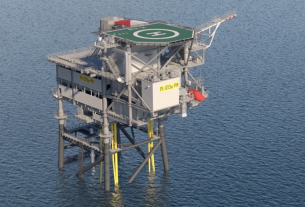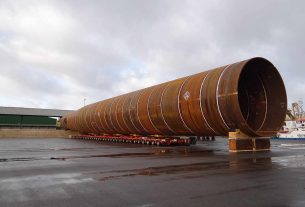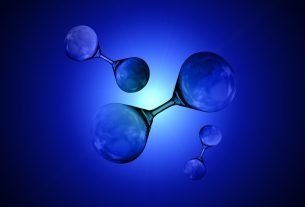Jacob Ruiter of EIT InnoEnergy has plenty of evidence that sustainable innovation is profitable. Ruiter is CEO of the Benelux part of the European public-private partnership that does much more than invest money. For a start-up, support in underpinning and developing the business case and a strong network are perhaps even more important than money,’ says Ruiter. But if we invest, it is a hallmark for other parties to get involved.
In terms of the number of investments in renewable energy technology, EIT InnoEnergy is second only to Shell Ventures. Founded eleven years ago as a company with an annual grant from Brussels, the company is becoming increasingly financially independent. I think we are living proof that investing in CO2-saving pays off’, says Ruiter. Where we started as one of the three Knowledge and Innovation Communities of the European Union (KICs, ed.), we are increasingly reducing the grant from Brussels. This is possible because for every euro invested, we get a return of 1.3 euros. We earn this money by supporting innovation projects and investing in start-ups, scale-ups and industrial projects. Often, this is in the form of money, but our core business is risk reduction. When we invest in a start-up or scale-up, other investors often dare to jump in too.
Market need
EIT InnoEnergy’s reputation is not without reason. For example, we have already successfully helped build two battery factories: one in France and one in Sweden. The Swedish producer, NorthVolt, is now building two more factories and has contracts with major European car manufacturers. And so, in those eleven years, we have seen three and a half thousand start-ups and chosen more than three hundred to invest in. So we know what to look for in our due diligence, but perhaps we know even better what the market needs.
Especially the latter is a prerequisite for successful innovation, according to Ruiter. The first question we ask parties with a good idea is: is the market waiting for it? And if parties already have potential customers, that makes the business case a lot stronger. The technology readiness level, or TRL, often doesn’t even matter that much. We used to have TRL 6 as a minimum, but we have come back to that somewhat. If someone has a good idea that can have a significant impact on the sustainability targets, it is more important to know how quickly it can be brought to market.
Technology agnostic
According to Ruiter, it is difficult to predict in advance which technology has the best chance of receiving support. He therefore describes InnoEnergy as a technology agnostic. I do think that the Netherlands needs to make clear choices. If we want to meet the demand for heat with green hydrogen, we will need much more electricity than we currently use. Hydrogen should therefore not be the starting point, but a partial solution in the complex energy chain. Renewable energy is scarce and we will have to use it wisely. In that light, I think that the priority should not be on data centres but on activities that offer the most added value for the Dutch economy and for sustainability targets.
It is not without reason that InnoEnergy invests in floating wind turbines or wave and tidal energy. But we are also bringing the production of solar panels back to Europe’, adds Ruiter. We had the best technology, but we let the Chinese take over the market. And we do invest in hydrogen, but in a chain context with a clear demand from an end customer. The H2 Green Steel consortium wants to build a completely new, green steel plant in Sweden by 2024. They have opted for a combination of hydrogen and electricity. A salient detail is that there is no steel producer in the consortium, but end users such as Scania and Mercedes Benz who are co-investing.
Not just hydrogen
Ruiter is also hopeful that the Netherlands will be able to participate in the fast-growing green economy. We have a high-quality knowledge infrastructure with both technical universities and technical institutes such as TNO. Nevertheless, in my view the government should not focus on hydrogen alone. We have also missed opportunities in the field of batteries. The Netherlands was absent from the last IPCEI tender. And yet Dutch companies could play a good role in the industrialisation of these kinds of systems or in battery recycling, for instance.
Dragons’ Den of Transition
Jacob Ruiter is one of the dragons in the Dragons’ Den of Transition during the European Industry & Energy Summit (December 7th and 8th, Rotterdam Ahoy). On the second day of the summit, a number of innovators will present their request for help to the dragons. It is then up to the dragons to decide whether they want to and can support the innovators.




